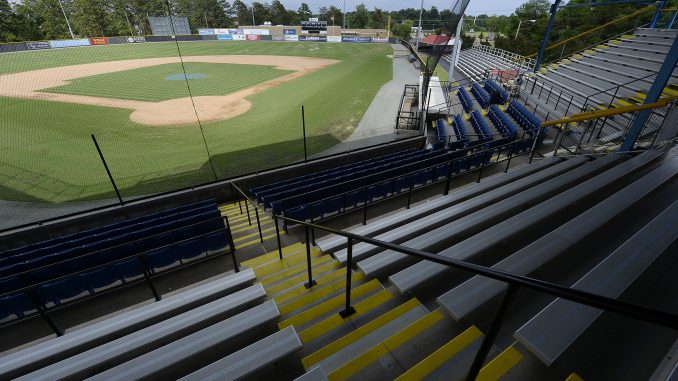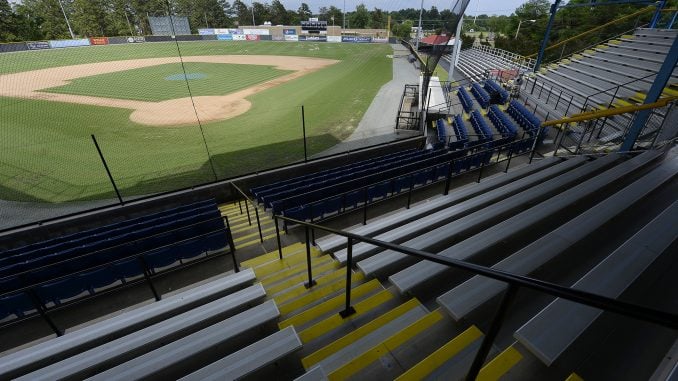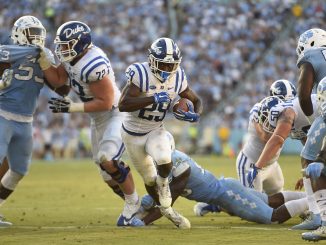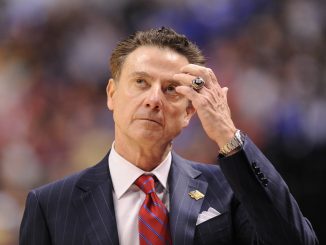

At the end of “Bull Durham,” the movie that encapsulated life in the minor leagues, Crash Davis is summoned into the manager’s office. Still shirtless and dripping wet from the shower, Crash learns that he’s being released so the team can make room for “some kid hitting .300 in Bluefield.”
Perhaps one reason that screenwriter Ron Shelton chose that particular team to provide the player that made Crash expendable is that he was once a kid in Bluefield, West Virginia, although he only hit .250 during his 1967 season with the team. Eleven years later, another kid — future Hall of Famer Cal Ripken — would fail to hit .300 in Bluefield in his first season of pro ball.
Earlier this month, Bluefield was the one who received the bad news about being cut. The Rookie League team in the Appalachian League was one of 42 teams around the country that is on the list to be eliminated by Major League Baseball.
With public outcry to pay minor league players more reaching a fever pitch, MLB is taking steps to improve the wages of its up-and-coming players. Like many businesses, however, it appears to be responding to a rise in the minimum wage by eliminating jobs. This move would contract nearly a fifth of all minor league franchises.
The list of teams to be eliminated includes the Chattanooga Lookouts, who have been a Double-A team since 1885. The often-told legend of a young girl taking the mound and striking out Babe Ruth and Lou Gehrig back to back? That took place at a Lookouts game in 1931.
It includes the Hagerstown Suns, home to Bryce Harper in 2011 and Hall of Famer Jim Palmer nearly five decades earlier; the Frederick Keys, Manny Machado’s team in 2011; the Ogden Raptors, the former team of Hall of Famer Frank Robinson; and the Bristol Pirates, who count among their alumni Hall of Famer Alan Trammell and current head of the MLB Players Association Tony Clark, who will be presumably involved in the negotiations to implement this plan.
These aren’t failing teams who were struggling to keep a head above water. Frederick drew 263,568 fans last year, just 1,300 behind Carolina League attendance leader Winston-Salem. The Daytona Tortugas finished second in the Florida State League in attendance and drew more than twice as many fans as five other teams in the league.
Overall, the 42 death row teams drew 3.99 million fans last year, more than any team in MLB.
These also aren’t teams whose communities won’t support a new stadium. Nearly a quarter of the teams — 10 of the 42 — have built new stadiums since 2000. Twenty-two — more than half — play in parks that are younger than 25 years old.
There are also teams that play in historic buildings. Vermont plays in a stadium built in 1922. Williamsport’s was built in 1926. Hagerstown’s stadium was constructed in 1930, as was Jackie Robinson Ballpark, home to Daytona Beach.
Overall, 22 states will lose minor league teams. That includes Utah, which loses two of the three that played in the state, and Montana, which loses all three of the teams it had. Vermont loses its only team. Tennessee loses six of its nine, West Virginia three of its four.
Twenty-eight of the 30 MLB teams drop at least one affiliate. Cincinnati loses four and Kansas City three.

The lower minor leagues suffered the brunt of the cuts. Seventeen of the teams slated for elimination are from the Rookie League. Another 11 are short-season Class A teams. There are 10 full-season A League teams and four Double-A franchises.
The New York-Penn League will lose nine of its 14 teams. The Pioneer League will lose all eight of its teams. The Appalachian League loses nine of its 10 teams, including North Carolina’s Burlington Royals — a team with 60 years of history that was home to Luis Tiant, Manny Ramirez, CC Sabathia and Jim Thome.
North Carolina U.S. Rep. Mark Walker (R-6), whose district includes Burlington, was one of 100 members of Congress to sign a letter to MLB commissioner Rob Manfred last week expressing “firm opposition” to the decision to eliminate teams.
“These professional baseball clubs are vital components of our communities because they provide affordable, family-friendly entertainment to members of our communities, support scores of allied businesses, employ thousands of individuals, donate millions of dollars in charitable funds, and connect our communities to Major League Baseball,” the letter stated.
Reps. David Price (D-4), Dan Bishop (R-9), Alma Adams (D-12) and Ted Budd (R-13) also signed it. So did Rep. Richard Hudson (R-8), who said in a separate statement, “Minor League Baseball plays a tremendous role in our local communities — generating economic growth, boosting tourism and supporting jobs. While preliminary reports point to only one North Carolina team on the chopping block. I am concerned this decision sets a dangerous precedent that no Minor League team is safe. I am proud to help lead this effort to protect the communities in our state — like Fayetteville and Kannapolis in my district — that enjoy Minor League Baseball and have invested in facilities and infrastructure.”
In his own letter to the commissioner, Sen. Bernie Sanders (I-Vt.), a Democratic candidate for president, was less measured in his opposition.
“Shutting down 25 percent of Minor League Baseball teams, as you have proposed, would be an absolute disaster for baseball fans, workers and communities throughout the country,” Sanders wrote. “Not only would your extreme proposal destroy thousands of jobs and devastate local economies, it would be terrible for baseball.”
The current agreement between MLB and the minor leagues doesn’t expire until after next season, so there still may be some changes to the plan during the upcoming months of negotiations.



